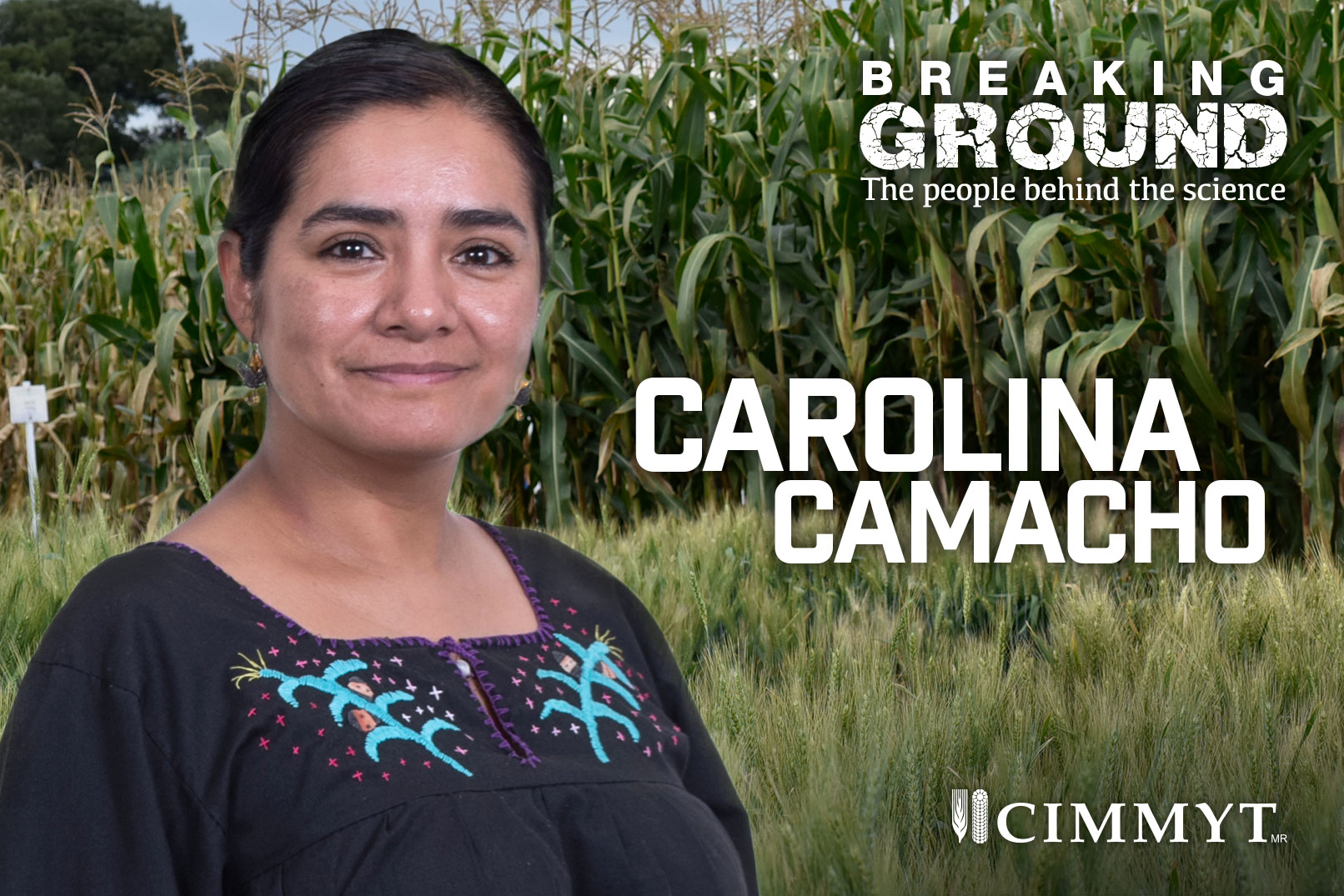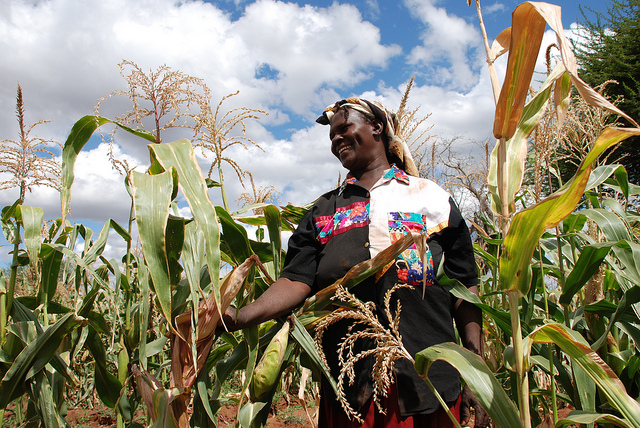Food and Agriculture Organization of the United Nations (FAO)
Zimbabwe enacts new strategy in fall armyworm fight
 Capacity development
Capacity development
The fall armyworm has since caused significant damage on over 280,000 hectares of maize in Africa since 2015. Zimbabwe established a fall armyworm working group in July this year to bring all stakeholders together and find solutions to manage the impacts of the pest in the country.
Entrepreneurship increases youth employment in Nepal
 Capacity development
Capacity development
CSISA partnership with a young entrepreneur in Nepal helps keep other youths involved in Agriculture.
Zimbabwe steps up food security with vitamin A maize
 Nutrition, health and food security
Nutrition, health and food security
More farmers in Zimbabwe are demanding high-yielding, highly nutritious and drought tolerant provitamin A maize.
Increased investment needed to adapt Africa’s agriculture to climate change
 Nutrition, health and food security
Nutrition, health and food security
Delegates at a conference in June called for a new focus and increase in investment to ensure eastern and southern Africa’s farming systems can withstand the impacts of climate change.
Farmers at center of sustainable agriculture in Kenya
 Capacity development
Capacity development
Climate change’s impact in eastern and southern Africa has driven many farmers to seek new planting techniques that maintain or increase crop production, despite fewer resources.
Seminar seeks to boost wheat production in West and Central Asia
 Capacity development
Capacity development
The sixth International Winter Wheat Travelling Seminar was recently held in Krasnodar, Russia, to improve wheat breeding across West and Central Asia.
Breaking Ground: More data on gender roles key for a food secure world, says Anya Umantseva
 Gender equality, youth and social inclusion
Gender equality, youth and social inclusion
Social inequality, including gender discrimination, hinders the potential for economic development, a key focus of the agriculture for development community.
Sustainable agriculture for healthy forests
 Climate adaptation and mitigation
Climate adaptation and mitigation
Agriculture is the second largest emitter of global greenhouse gas emissions and largest driver of deforestation, making the sector one of the top contributors to climate change and biodiversity loss.
Fall armyworm devastates crops in sub-Saharan Africa: A quick and coordinated regional response is required
 Nutrition, health and food security
Nutrition, health and food security
The head of CIMMYT’s Global Maize Program highlights the potential impact of the fall armyworm pest and how CGIAR researchers are contributing to a quick and coordinated response across the Africa.
USAID delegation tours sustainable agriculture activities in Bangladesh
 Innovations
Innovations
A delegation of USAID representatives recently visited southern Bangladesh to learn about sustainable agriculture activities in the area and emerging challenges to wheat production.
Breaking Ground: Hands on experience gives Carolina Camacho insight into farming best practices
 Innovations
Innovations
Tending her own crops gives Carolina Camacho insights into the challenges farmers face that she could never have learned in a classroom.
Breakthroughs in agriculture for action on climate change
 Climate adaptation and mitigation
Climate adaptation and mitigation
Climate change presents a formidable challenge as one of the biggest constraints to improving food systems, food security and poverty alleviation around the world, especially for the world’s most vulnerable people.
New Publications: Wheat stem rust resistance identified in Kazakhstan and Russia
 Nutrition, health and food security
Nutrition, health and food security
Stem rusts have proven to be a challenge to wheat farmers in Kazakhstan and Russia, particularly with higher rainfall in recent years.
CIMMYT launches new program to promote gender equity in agricultural research
 Gender equality, youth and social inclusion
Gender equality, youth and social inclusion
In a move to bolster gender equity in agriculture, CIMMYT will launch a series of training courses promoting the integration gender awareness and analysis in research for development.
Small machinery provides affordable options for women farmers in Nepal
 Gender equality, youth and social inclusion
Gender equality, youth and social inclusion
Small-scale mechanization is becoming more important on farms in Nepal as young people, particularly men, migrate away from rural areas in large numbers.

